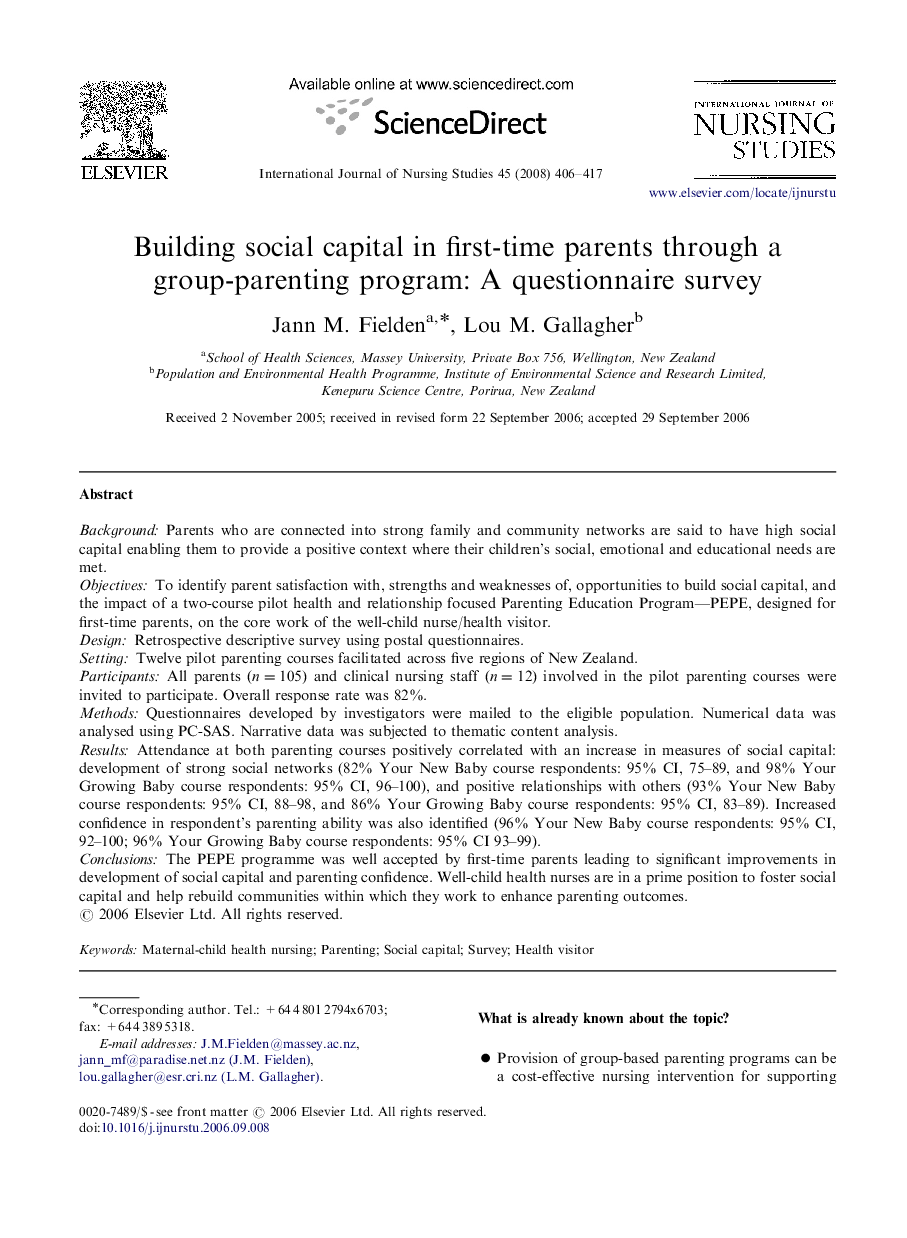| کد مقاله | کد نشریه | سال انتشار | مقاله انگلیسی | نسخه تمام متن |
|---|---|---|---|---|
| 1076919 | 1486610 | 2008 | 12 صفحه PDF | دانلود رایگان |

BackgroundParents who are connected into strong family and community networks are said to have high social capital enabling them to provide a positive context where their children's social, emotional and educational needs are met.ObjectivesTo identify parent satisfaction with, strengths and weaknesses of, opportunities to build social capital, and the impact of a two-course pilot health and relationship focused Parenting Education Program—PEPE, designed for first-time parents, on the core work of the well-child nurse/health visitor.DesignRetrospective descriptive survey using postal questionnaires.SettingTwelve pilot parenting courses facilitated across five regions of New Zealand.ParticipantsAll parents (n=105)(n=105) and clinical nursing staff (n=12)(n=12) involved in the pilot parenting courses were invited to participate. Overall response rate was 82%.MethodsQuestionnaires developed by investigators were mailed to the eligible population. Numerical data was analysed using PC-SAS. Narrative data was subjected to thematic content analysis.ResultsAttendance at both parenting courses positively correlated with an increase in measures of social capital: development of strong social networks (82% Your New Baby course respondents: 95% CI, 75–89, and 98% Your Growing Baby course respondents: 95% CI, 96–100), and positive relationships with others (93% Your New Baby course respondents: 95% CI, 88–98, and 86% Your Growing Baby course respondents: 95% CI, 83–89). Increased confidence in respondent's parenting ability was also identified (96% Your New Baby course respondents: 95% CI, 92–100; 96% Your Growing Baby course respondents: 95% CI 93–99).ConclusionsThe PEPE programme was well accepted by first-time parents leading to significant improvements in development of social capital and parenting confidence. Well-child health nurses are in a prime position to foster social capital and help rebuild communities within which they work to enhance parenting outcomes.
Journal: International Journal of Nursing Studies - Volume 45, Issue 3, March 2008, Pages 406–417